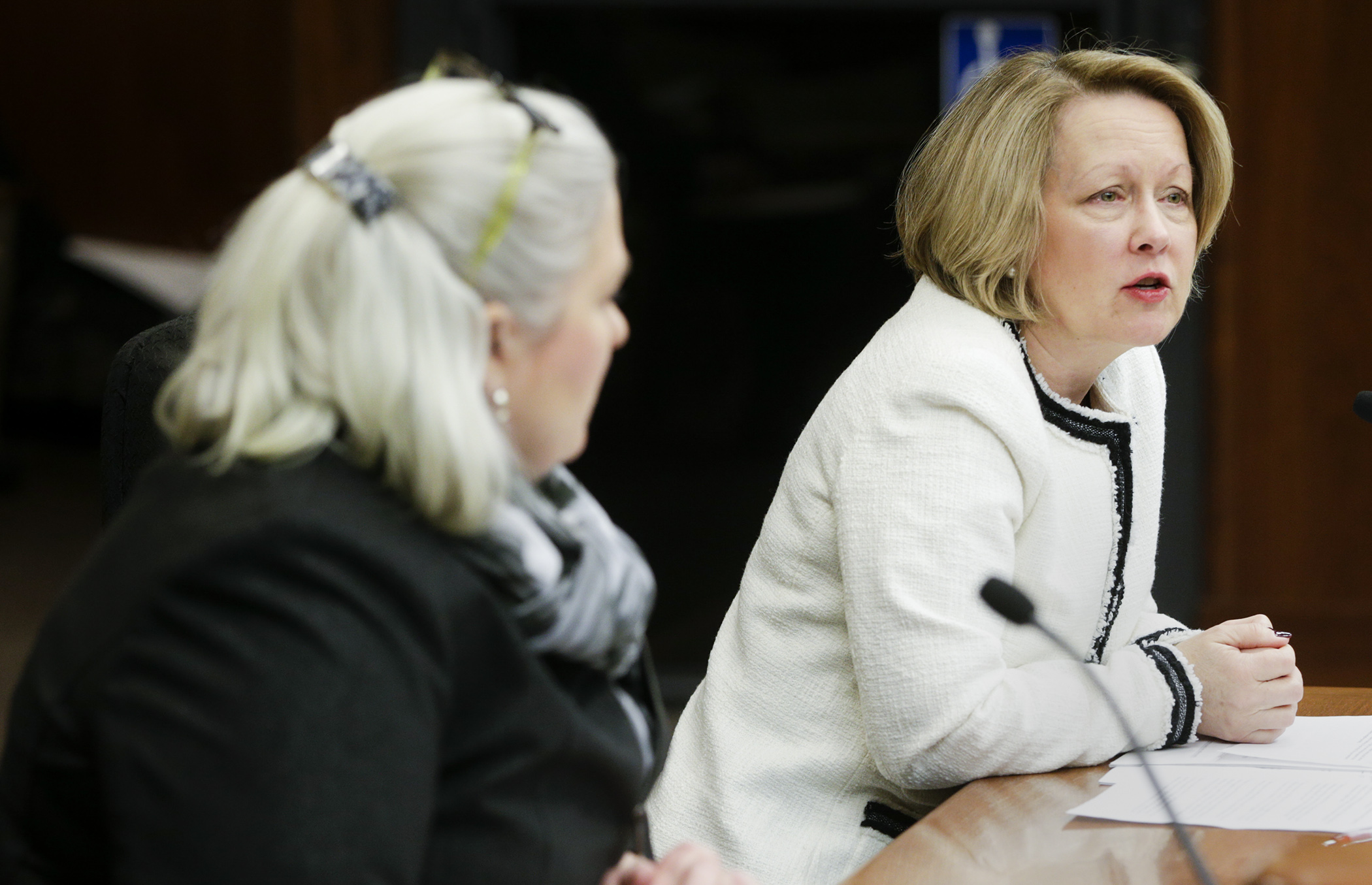Bills aim to crackdown on teacher misconduct

Several bills that would work together to crackdown on teacher-student relationships and prohibit teachers with criminal backgrounds from obtaining state-teaching licensure, were heard Tuesday by the House Education Innovation Policy Committee.
Among them is HF2795, sponsored by Rep. Jenifer Loon (R-Eden Prairie), which, as amended, would make it illegal for teachers to have consensual sex with 18-year-old students by better defining misconduct and codifying the code of ethics into law.
It was approved and sent to the House Transportation and Regional Governance Policy Committee. There is no Senate companion.
Sponsored by Rep. Kelly Fenton (R-Woodbury), HF2777, as amended, is meant to keep more people with criminal pasts from obtaining a teaching license. It would do so by expanding the list of crimes that result in automatic denial or revocation of a license to include convictions of domestic assault or abuse, embezzlement of public funds or a felony or gross misdemeanor involving a minor.
It was laid over for possible omnibus bill inclusion. The companion, SF2748, awaits action by the Senate E-12 Policy Committee. Sen. Eric Pratt (R-Prior Lake) is the Senate sponsor.
Loon and Fenton prefaced their remarks with praise for the majority of teachers.
“Unfortunately, we do have a few rare instances that cause concern,” Loon said. “We’ve heard a few of those instances in the news and they are always of concern to parents and obviously to legislators. We are responsible for making sure that we are only putting people that we would want in front of our own children in the classroom.”
Other components of Loon’s bill include expanding the list of criminal offenses that would result in the automatic denial or revocation of a teaching license and requiring the educator licensing board to automatically report alleged mistreatment of a student to law enforcement regardless of when the incident occurred. It would also require periodic criminal background checks of educators and school staff that would include a stay of adjudication history.
“We’ve had instances of people being fired as school bus drivers, where there were stay of adjudications for sexual contact with children in the past,” Loon said. “Those types of legal processes do not show up in the criminal background check and I think it’s important that, that information be provided so it can be known.”
Committee members shared their support, with a few sticking points, namely the issue of periodic background checks.
“If the employer is paying for it, it becomes an unfunded mandate unless we provide some money for it,” Rep. JoAnn Ward (DFL-Woodbury) said. “I’m just concerned about the flow of money and who’s actually going to end up paying for this.”
Gary Amoroso, executive director of Minnesota Association of School Administrators, lent his support for the bills, but said periodic background checks are also a concern for school administrators.
“That could create a challenge for districts,” he said. “We heard from our colleagues in Anoka yesterday that it could be up to $75,000 a year.”
Meg Luger-Nikolai, an attorney for Education Minnesota, said that while the union has no problem with the inclusion sexual conduct offenses, there are other concerns, including the expanded list of offenses that result in automatic denial or revocation of licensure.
“Under this statute, now we’re treating things with a shovel instead of a scalpel in terms of the precision with which we look at problems,” she said.
Luger-Nikolai works with teachers who have encountered licensing issues and commonly sees individuals who have mishandled small amounts of activity funds.
“Most of the time it’s not because of a grand criminal conspiracy — because we’re talking about a couple hundred bucks at a time — it’s because of stupidity and lack of training and I’ll be completely blunt on that,” she said.
When those cases occur the charge can be theft of public funds, and ultimately a teacher can be barred from ever teaching again if there is a conviction or a state of adjudication.
“When you make something an automatic revocation offense there is really no room for the board to determine how serious the issue was and additionally whether or not the individual can redeem him or herself,” Luger-Nikolai said.
Loon said that it’s ultimately a matter of ensuring student safety and that teachers should be held to a higher standard.
“We want to make sure that we are doing everything that we can to reassure parents … that their children are safe and they are in good hands when they send them off to school and I think this bill helps accomplish that,” she said.
Related Articles
Search Session Daily
Advanced Search OptionsPriority Dailies
Legislative leaders set 2026 committee deadlines
By Lisa Kaczke Legislative leaders on Tuesday officially set the timeline for getting bills through the committee process during the upcoming 2026 session.
Here are the three deadlines for...
Legislative leaders on Tuesday officially set the timeline for getting bills through the committee process during the upcoming 2026 session.
Here are the three deadlines for...